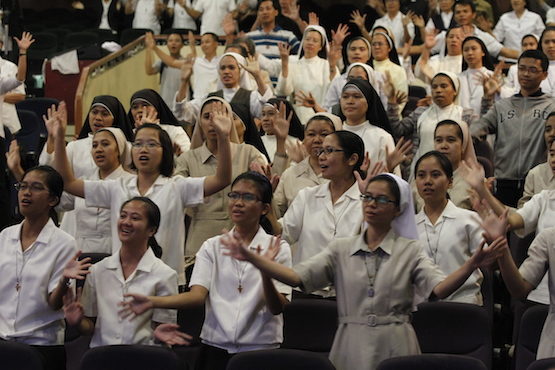
We often hear that Christianity, or religion in general, is unappealing for women because religions tend to be ‘patriarchal’. However, in practice women are more religious than men, and this is particularly the case among Christians. It turns out that the bigger problem Christianity faces is in attracting more men to services.
Pew Research Center in the US conducts major polling on a continuous basis. Several of its surveys have looked at religious participation by sex. For example, one survey found that American women are more likely than men to say religion is “very important” in their lives (60% vs. 47%).
They are more likely than men to pray (64% vs 47%) and to attend a religious service at least once a week (40% vs 32%).
But the gender gap in religion changes among different faiths and among cultures. According to aworld-wide study by Pew, Christian women are more religious than Christian men, but “Muslim women and Muslim men show similar levels of religiousness on all measures of religious commitment except frequency of attendance at worship services. Because of religious norms, Muslim men attend services at a mosque much more often than Muslim women do.”
Scholars agree that the religious gender gap is due to a confluence of multiple factors: psychology, family environment, social status, workforce participation, etc., but there is no consensus on exactly which factors are more responsible for gender differences.
The teachings of a particular creed might make it more appealing to women, rather than men, but local traditions and habits also play a role. This means that even within the same tradition, Christianity for instance, there are significant differences in different parts of the world.
An estimated 83.4% of women around the globe identify with a faith group, compared with 79.9% of men. There is no significant difference in weekly attendance in countries where Buddhism is the major religion.
Christian women have higher rates of church attendance in all countries where Christians are a majority. Interestingly, where they are a minority, the differences among men and women in terms of church attendance are smaller. The prevailing religion plays an obvious influence on the rest of the population in those countries, and culture rather than beliefs explains the gender gap there.
Israel is the only country in the world where a higher percentage of men than women reports engaging in daily prayers. Overall, “the average share of women who say they pray daily is 8 percentage points higher than the average share of men”, the Pew Research Center found. And this is the case also for unaffiliated women, who pray more than men.
Among Hindus in the U.S., daily prayer is significantly more common among women than men (+29%), but the gender differences among Hindus in India are not statistically relevant.
Among Buddhists, women also report a higher rate of daily prayer than men, but the difference is statistically significant only in Japan (+10%).
Only in Israel and Mozambique are men more likely than women to consider religion very important for them personally. Everywhere else, women are more religious. Even the unaffiliated women report higher levels of engagement with religion than unaffiliated men across several indicators, including weekly attendance at religious services, daily prayer and saying religion is very important to them.
Nessun commento:
Posta un commento